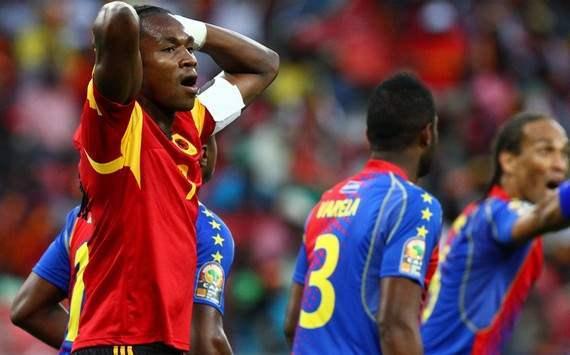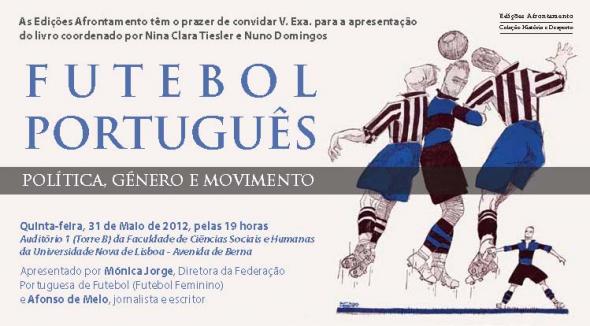by CLÁUDIO C. SILVA
Like many Angolans on Sunday I was forced to eat my share of humble pie and admit the superiority of Cape Verde’s national football team, which, through sheer grit and determination, qualified their country to the quarterfinals of the African Cup of Nations at their first time of asking. Thus the tiny island nation of Cape Verde is now one of the 8 best teams on the continent. The Cape Verdeans played with a passion and will to win that has been conspicuously absent from the Angolan outfit since the opening match against the Moroccans. Watching Angola and Cape Verde play after having watched the Ivorians and to a lesser extent the Togolese beat their opposition the previous day highlighted just how far Lusophone football has to progress in order to challenge the continental giants; but the gulf in class between the Angolans and the Ivorians for example showed just how far apart we are in pure footballing skills. But also a matter of politics.
Clearly a team that played the way the Palancas Negras played against South Africa and Cape Verde has some much deeper structural issues that need to be examined. Perhaps we are not yet ready to progress beyond the quarterfinals. Cape Verde showed us that we are better off focusing on progressing from the group stages instead.

Condemnation of the Palancas Negras was swift and brutal amongst Angolans on both Facebook and Twitter. They were outraged at their team but many were also magnanimous enough to applaud Cape Verde on their brilliant achievement. Many questioned the $9 million that was spent on the Palancas Negras’ preparation. There was also widespread discontent aimed at FAF (Angolan Football Federation) and even the Minister of Youth and Sports for what many Angolans perceive as misguided sports policies and chronic underinvestment in the sector. Among the most common complaints is the complete lack of investment in youth football, footballing schools and youth development in Angola.
Many questioned why it seemed that Angolan football team owners have enough money to bring ageing stars into the country (such as Rivaldo to Kabuscorp) but don’t seem to care about developing their own clubs’ youth structures. For a team in its seventh appearance in the Nations Cup finals, a lot more was expected of them. Fans noticed that the team hasn’t built on its 2006 success, when the Palancas reached the World Cup.
Angola is used to being the Big Brother among Africa’s Lusophone nations: our petrodollars and military might obfuscate our many shortcomings. So Cape Verde’s victory over Angola was met with huge appreciation not just with Cape Verdeans but also among Mozambicans.
Cape Verde, once again, taught us a lesson.


